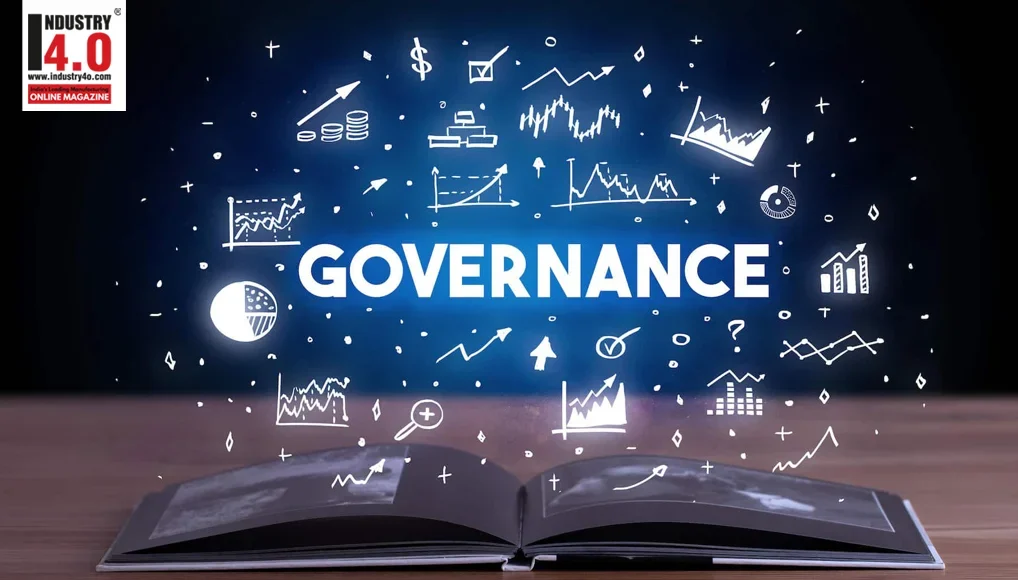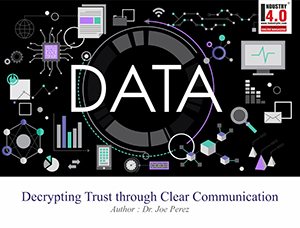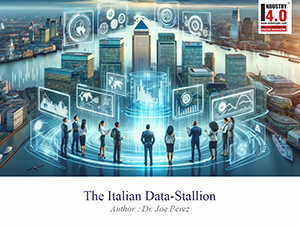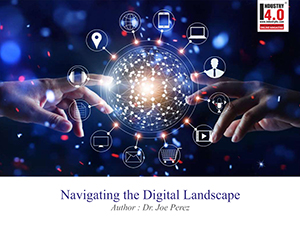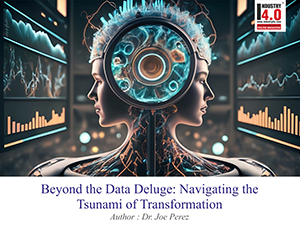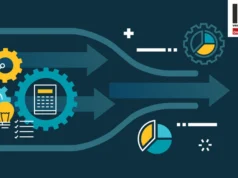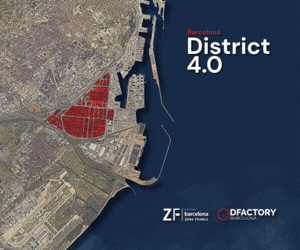Data Governance: Your Digital Lifeline
Introduction
In the realm of freediving, there’s a record that many consider unbeatable. Back in 2007, Herbert Nitsch made an extraordinary dive, descending to an astonishing depth of 214 meters on a single breath.
To truly grasp the magnitude of this achievement, consider that this depth exceeds 700 feet, deeper than the height of the Space Needle in Seattle. And Nitsch did this while descending at alarming speeds of more than 5 meters per second. At such depths, the water pressure is so crushing that it could implode World War II submarines.
The dangers inherent in freediving are profound, ranging from serious brain injuries to fatalities, which is why no official organization recognizes attempts to break Nitsch’s record. It stands as a testament to the extreme limits of human capability.
This awe-inspiring yet intimidating record serves as a powerful metaphor for the necessity of strong data governance. Diving into the depths of data without solid governance is like freediving without a safety tether—organizations are exposed to severe risks, such as loss of control, inefficient processes, and diminished transparency.
However, with the right data governance strategies in place, organizations can explore the most intricate corners of their data landscapes, uncovering invaluable insights while maintaining safety and security, much like how a skilled freediver relies on their lifeline to wisely navigate the ocean depths.
As we consider the remarkable achievements in freediving, it becomes evident that just as divers need to respect the ocean’s depths, organizations must also recognize the complexities of their data environments. In both cases, managing risk is a critical factor. For freedivers, understanding the dangers of deep water requires meticulous preparation and an acute awareness of potential harm. Similarly, in data governance, organizations must develop a thorough understanding of the risks associated with their data, making sure they’re not blindsided by any unexpected threats.
Moreover, the importance of having a reliable safety tether in freediving directly correlates to the necessity of implementing robust governance frameworks in data management. Just as freedivers depend on their safety lines to protect them from potential dangers, organizations must establish robust data governance protocols to protect their valuable data assets. These protocols offer a systematic approach to risk management, ensuring that data remains secure and compliant with regulations. Without such safeguards, the repercussions could be disastrous, much like the life-threatening risks faced by a freediver without essential safety gear.
Finally, as we plunge deeper into the complexities of data governance, it becomes increasingly evident that cultivating a culture of risk awareness is paramount. Freedivers undergo extensive training to hone their skills and to remain alert to their surroundings. Likewise, organizations must nurture a similar mindset among their teams, where every member understands the critical role that data governance plays in risk mitigation. This awareness level not only safeguards the organization but also empowers teams to make well-informed decisions when navigating the challenges of data management.
Understanding Data Governance and Its Risks
In data governance, the concept of cutting corners on security can be likened to a freediver neglecting essential safety precautions. When IT teams overlook security measures, they may inadvertently jeopardize the overall integrity of their governance framework. This highlights the importance of risk awareness. It’s not merely about identifying immediate threats such as data breaches; it’s about recognizing the broader implications that can cascade through an organization.
For instance, when security measures are relaxed, sensitive information becomes vulnerable to unauthorized access. This not only threatens the data itself but could also lead to significant repercussions such as data manipulation, loss of consumer trust, and legal consequences. The implications of compromised data security can be dire, leading to flawed governance decisions. Therefore, organizations must prioritize a robust understanding of their risk landscape to navigate these dangers effectively.
The Importance of Proactive Risk Management
Proactive risk management can be likened to a freediver who carefully checks their gear and surveys the environment before plunging into the depths. The initial step in this proactive strategy involves identifying potential vulnerabilities early on, preventing them from evolving into significant problems. IT teams must remain alert to areas where security practices could unintentionally be compromised.
For example, an IT team might believe that bypassing encryption for less sensitive datasets is harmless. However, if those datasets later become intertwined with critical information, they could create exploitable vulnerabilities. By proactively identifying these potential weak points, organizations can implement strategies to strengthen their governance framework before threats materialize. This foresight allows teams to address risks comprehensively, ensuring that data remains secure.
Cultivating a Culture of Risk Awareness
Embedding risk awareness into the culture of governance practices is essential for maintaining a secure data environment. Just as freedivers train regularly to hone their skills and remain mindful of their surroundings, organizations should cultivate a similar culture among their teams. This involves more than simply having the right tools in place; it requires fostering an environment where every individual understands the far-reaching consequences of compromised data security.
Regular risk assessments, ongoing training, and open communication channels are vital in building this culture. When IT teams understand the ramifications of their actions and decisions, they are more likely to prioritize security measures that align with the organization’s governance objectives. In essence, creating a culture of risk awareness transforms data governance from a set of protocols into a shared responsibility that everyone embraces.
The parallels between freediving and data governance are striking and serve as a reminder of the importance of preparation and respect for the risks involved. Just as Herbert Nitsch’s unbreakable record stands as a testament to human achievement tempered by caution, robust data governance is essential to navigating the complexities of the information landscape.
Without proper governance, organizations risk plunging into the depths of their data without a safety tether, potentially leading to catastrophic failures that could compromise both data integrity and organizational trust. However, by establishing a culture of risk awareness and implementing comprehensive governance frameworks, organizations can explore their data environments confidently, unearthing invaluable insights while minimizing risks.
As we continue to navigate the ever-evolving data landscape, let us draw inspiration from the world of freediving. Just as divers rely on their training, trust in their equipment, and respect for the ocean’s depths, organizations must prioritize their data governance initiatives. By doing so, they can ensure that they are not only safeguarding their data but also empowering their teams to make informed, strategic decisions that drive success and innovation.
Bridging the Gap Between Theory and Practice
To ensure that the principles of data governance translate into effective practice, organizations must take actionable steps. This involves not only understanding the theoretical frameworks surrounding data governance but also applying them in real-world scenarios. Just as freedivers undergo rigorous training to master their craft, organizations must equip their teams with the knowledge and tools necessary to handle data responsibly.
One effective way to bridge this gap is through the establishment of clear policies and procedures that outline data governance responsibilities. Every team member should be aware of their role in maintaining data integrity and security. This clarity fosters accountability and ensures that everyone is aligned with the organization’s governance objectives. Additionally, organizations should leverage technology to automate compliance checks and monitoring processes, making it easier for teams to adhere to established governance standards.
Real-World Implications of Data Governance
The implications of robust data governance extend beyond mere compliance and risk mitigation; they can also have a profound impact on organizational success. In today’s data-driven world, organizations that prioritize effective governance can leverage their data as a strategic asset. This much like how a skilled freediver uses their knowledge of the ocean to navigate its depths successfully.
For instance, organizations with strong data governance frameworks can make informed decisions based on accurate and reliable data. This leads to enhanced operational efficiency, improved customer satisfaction, and greater innovation. Conversely, those that neglect governance may find themselves mired in chaos, facing data breaches, regulatory penalties, and eroded trust from stakeholders.
Thus, the investment in data governance is not merely an expense but rather a strategic imperative that can unlock new opportunities and drive sustainable growth. Like a freediver who respects the ocean and understands its currents, organizations that embrace data governance can navigate the complexities of the modern data landscape with confidence.
Conclusion: Embracing the Journey Ahead
The connection between freediving and data governance highlights the necessity for a deep respect for risk and a steadfast commitment to safety. Similar to a freediver’s ongoing quest to refine their skills with each dive, achieving excellence in data governance is an ongoing endeavor. Organizations must remain vigilant and adaptable as they acquire new insights, responding to the dynamic nature of data management.
Essentially, Herbert Nitsch’s remarkable feats serve as a reminder of human limits and the significance of thorough preparation; organizations should adopt a similar seriousness in their approach to data governance. By fostering a culture that emphasizes risk awareness, creating robust governance structures, and implementing proactive management techniques, organizations can effectively and safely navigate the intricate world of data management.
In the end, data governance serves as a crucial support system, allowing organizations to explore their data more deeply, revealing valuable insights while ensuring security and compliance. This journey should be viewed as not just a means of safeguarding data but also as a way to empower teams to innovate and excel. Just like in freediving, the secret lies in harmonizing ambition with caution, ensuring that the quest for knowledge does not jeopardize safety.
By dedicating themselves to data governance, organizations can successfully explore the depths of their data landscapes and thrive, making informed choices that propel them toward a future filled with possibilities and opportunities.
“Bringing Data to Life and Life to Data”

Dr. Joe Perez,
Team Lead / Senior Systems Analyst,
NC Department of Health and Human Services
Dr. Joe Perez ( Dr.Joe ) is also the Chief Technology Officer – CogniMind
To book Dr. Joe Perez for your speaking engagement please click here
Dr. Joe Perez was selected as the 2023 Gartner Peer Community Ambassador of the Year.
Dr. Joe Perez is a truly exceptional professional who has left an indelible mark on the IT, health and human services, and higher education sectors. His journey began in the field of education, where he laid the foundation for his career. With advanced degrees in education and a doctorate that included a double minor in computers and theology, Joe embarked on a path that ultimately led him to the dynamic world of data-driven Information Technology.
In the early 1990s, he transitioned into IT, starting as a Computer Consultant at NC State University. Over the years, his dedication and expertise led to a series of well-deserved promotions, culminating in his role as Business Intelligence Specialist that capped his 25 successful years at NC State. Not one to rest on his laurels, Dr. Perez embarked on a new challenge in the fall of 2017, when he was recruited to take on the role of Senior Business Analyst at the NC Department of Health & Human Services (DHHS). His impressive journey continued with promotions to Senior Systems Analyst and Team Leader, showcasing his versatility and leadership capabilities.
In addition to his full-time responsibilities at DHHS, Joe assumed the role of fractional Chief Technology Officer at a North Carolina corporation in October 2020. A top-ranked published author with over 17,000 followers on LinkedIn and numerous professional certifications, he is a highly sought-after international keynote speaker, a recognized expert in data analytics and visualization, and a specialist in efficiency and process improvement.
Dr. Perez’s contributions have not gone unnoticed. He is a recipient of the IOT Industry Insights 2021 Thought Leader of the Year award and has been acknowledged as a LinkedIn Top Voice in multiple topics. He holds memberships in prestigious Thought Leader communities at Gartner, Coruzant Technologies, DataManagementU, Engatica, the Global AI Hub, and Thinkers360 (where he achieved overall Top 20 Thought Leader 2023 ranking in both Analytics and Big Data). His reach extends to more than twenty countries worldwide, where he impacts thousands through his speaking engagements.
Beyond his professional achievements, Joe’s passion for teaching remains undiminished. Whether as a speaker, workshop facilitator, podcast guest, conference emcee, or team leader, he continually inspires individuals to strive for excellence. He treasures his time with his family and is a gifted musician, singer, pianist, and composer. Joe also dedicates his skills as a speaker, interpreter, and music director to his church’s Hispanic ministry. He manages the publication of a widely recognized monthly military newsletter, The Patriot News, and is deeply committed to his community.
To maintain a balanced life, Perez is a regular at the gym, and he finds relaxation in watching Star Trek reruns. He lives by the philosophy that innovation is the key to progress, and he approaches each day with boundless energy and an unwavering commitment to excellence. His journey is a testament to the remarkable achievements of a truly exceptional individual.
Dr. Joe Perez is Accorded with the following Honors & Awards :
https://www.linkedin.com/in/jw
Dr. Joe Perez is Bestowed with the following Licences,Certifications & Badge:
https://www.linkedin.com/in/jw
https://www.thinkers360.com/tl
Dr.Joe Perez is Voluentering in the following International Industry Associations & Institutions :
https://www.linkedin.com/in/jw
Dr.Joe Perez can be contacted at :
E-mail | LinkedIn | Web | Sessionize | FaceBook | Twitter | YouTube
Also read Dr.Joe Perez‘s earlier article:

